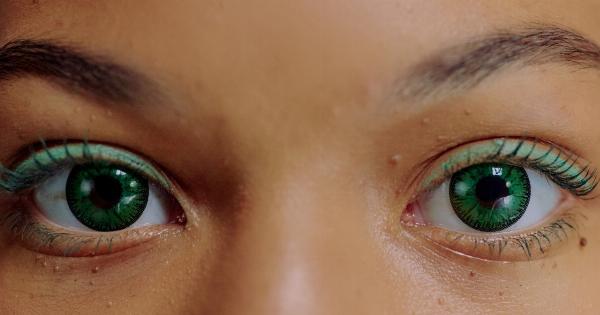Eye redness is a common condition that occurs when the blood vessels in the white part of the eye, also known as the sclera, become swollen or dilated.
This can happen for a variety of reasons, ranging from minor irritations to more serious underlying health conditions. Understanding the causes of eye redness can help you determine the best course of treatment and take steps to prevent future occurrences.
Allergies as a Cause of Eye Redness
One of the most common causes of eye redness is allergies. Allergic reactions can trigger the release of histamines, leading to redness, itching, and irritation in the eyes.
Common allergens that can cause eye redness include pollen, pet dander, dust mites, and certain medications.
Bacterial and Viral Infections
Bacterial and viral infections can also cause eye redness. Conjunctivitis, also known as pink eye, is a common eye infection that causes redness, discharge, and itching.
Bacterial conjunctivitis is typically treated with antibiotics, while viral conjunctivitis usually resolves on its own.
Dryness and Eye Strain
Dryness and eye strain are frequent culprits of eye redness. Extended periods of screen time, reading, or other activities that require intense visual focus can cause the eyes to become dry and red.
Blinking less frequently while engaged in these activities can exacerbate the problem.
Environmental Irritants
Exposure to certain environmental irritants can cause eye redness. Smoke, pollution, chemicals, and even strong winds can lead to inflammation and redness in the eyes.
Protecting your eyes with sunglasses or avoiding exposure to these irritants can help prevent eye redness.
Conjunctival and Corneal Foreign Bodies
Foreign bodies such as dust, small debris, or contact lenses that become stuck in the eye can cause eye redness. These foreign bodies can irritate the delicate tissues of the conjunctiva and the cornea, leading to redness, tearing, and discomfort.
Eye Trauma or Injury
Eye trauma or injury can result in eye redness. A blunt force impact to the eye, a foreign object penetrating the eye, or chemical exposure can all cause redness and other symptoms.
Seeking immediate medical attention is crucial in these cases to prevent further damage to the eye.
Glaucoma
Glaucoma is a serious eye condition characterized by increased pressure within the eye, which can damage the optic nerve and lead to vision loss if left untreated.
Eye redness is often a symptom of acute angle-closure glaucoma, which requires immediate medical attention.
Use of Contact Lenses
Wearing contact lenses for prolonged periods, improper lens care, or using expired lenses can lead to eye redness. Contact lenses that don’t fit properly can also cause irritation and redness.
It is essential to follow proper contact lens hygiene and consult with an eye care professional if you experience persistent redness or discomfort.
Eye Fatigue
Eye fatigue, also known as asthenopia, can result in eye redness. This typically occurs after extended periods of activities that require intense visual concentration, such as reading, writing, or driving.
Taking regular breaks and practicing eye exercises can help alleviate eye fatigue and reduce redness.
Chemical Exposures
Exposure to certain chemicals, such as chlorine in swimming pools or harsh cleaning products, can cause eye redness. The eye’s sensitive tissues can react to these chemicals, leading to irritation, redness, and discomfort.
Wearing protective goggles when working with chemicals or swimming can minimize the risk of eye redness.
Treating Eye Redness
The treatment for eye redness depends on the underlying cause. In some cases, simply avoiding the triggers or irritants may be enough to alleviate symptoms and reduce redness.
However, for more severe or persistent cases, medical intervention may be necessary. It is always advisable to consult with an eye care professional for an accurate diagnosis and appropriate treatment plan.
Over-the-Counter Eye Drops
Over-the-counter (OTC) eye drops or artificial tears can provide temporary relief from eye redness caused by dryness or minor irritations. These lubricating eye drops help moisten the eyes, reducing redness and discomfort.
It is essential to choose eye drops formulated specifically for redness relief.
Antihistamines
If eye redness is due to allergies, antihistamine eye drops may be recommended. These eye drops help alleviate the allergic response by blocking histamines, reducing inflammation, and relieving redness and itching.
Antihistamine eye drops are available over the counter or by prescription.
Antibiotics or Antiviral Medications
If eye redness is caused by bacterial or viral infections, prescription medications such as antibiotics or antiviral drugs may be prescribed. These medications target the underlying infection, helping to clear the redness, discharge, and other symptoms.
It is crucial to follow the prescribed treatment regimen as instructed by a healthcare professional.
Corticosteroids
In certain cases of severe eye redness associated with inflammation, corticosteroid eye drops may be prescribed. These powerful anti-inflammatory medications can help reduce redness, swelling, and irritation.
However, corticosteroids should only be used under the guidance of a healthcare professional due to potential side effects.
Surgical Intervention
In rare cases where eye redness is caused by serious conditions like glaucoma or eye trauma, surgical intervention may be necessary.
Surgical procedures aim to relieve pressure, repair damage, or remove foreign bodies that contribute to redness and other symptoms. Ophthalmologists will carefully evaluate each case to determine the most suitable surgical approach.
Preventing Eye Redness
While not all cases of eye redness can be prevented, there are steps that can be taken to minimize the risk:.
Protective Eyewear
When engaging in activities that may expose your eyes to irritants, chemicals, or foreign objects, wearing protective eyewear such as goggles or safety glasses can help prevent eye redness.
Contact Lens Hygiene
If you wear contact lenses, following proper hygiene practices is crucial.
Cleaning and disinfecting your lenses as instructed by your eye care professional, replacing them as recommended, and avoiding sleeping with contact lenses can all help prevent eye redness.
Regular Eye Rest and Exercises
To avoid eye strain and fatigue that can lead to redness, it is essential to take regular breaks from activities that require intense visual focus.
Additionally, practicing eye exercises recommended by your eye care professional can help relax and strengthen your eyes.
Allergy Management
If you know that allergies cause your eye redness, managing your allergy symptoms can help prevent redness.
This may involve avoiding known allergens, using air purifiers indoors, and taking appropriate allergy medications as advised by your healthcare provider.






























